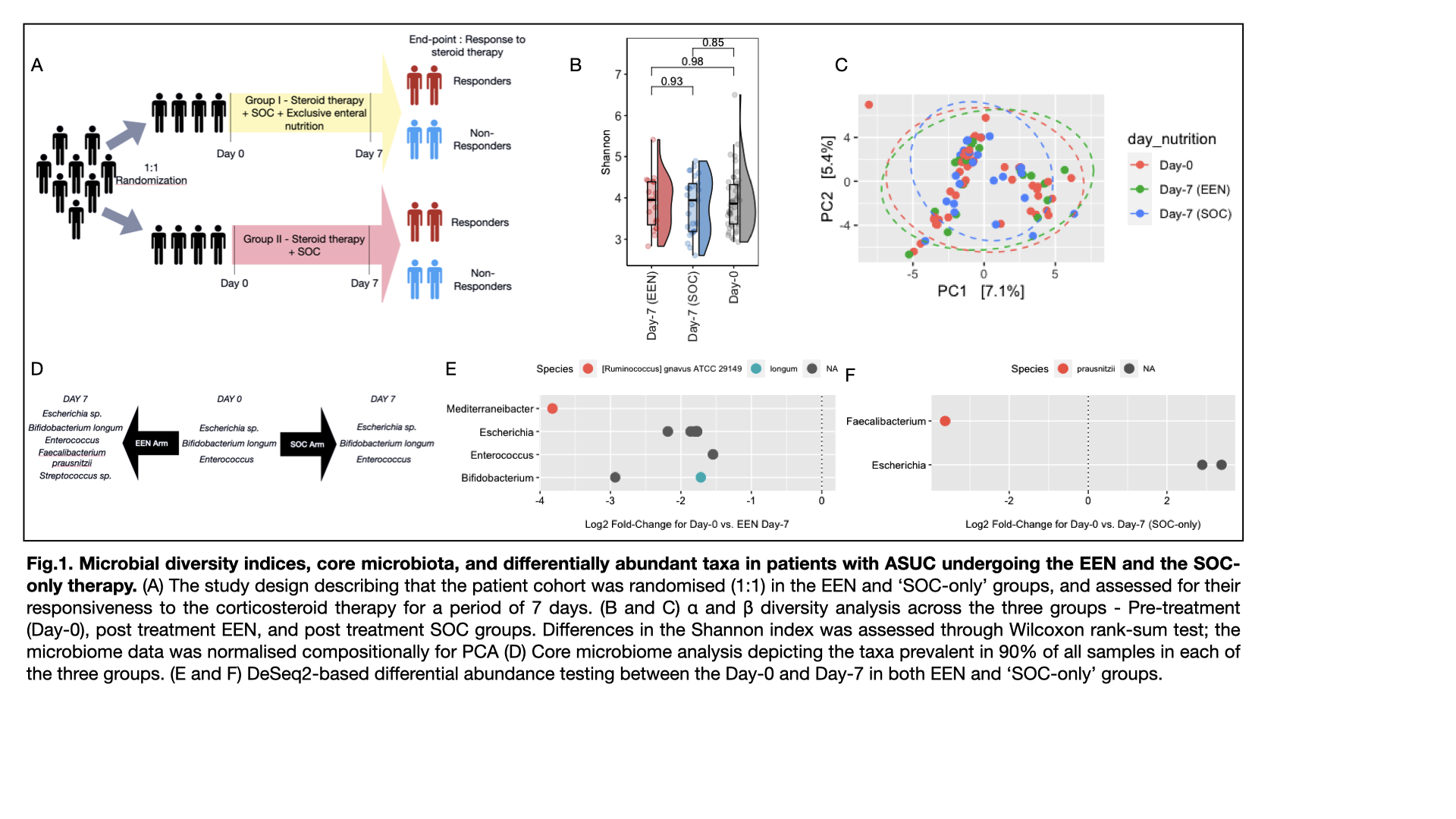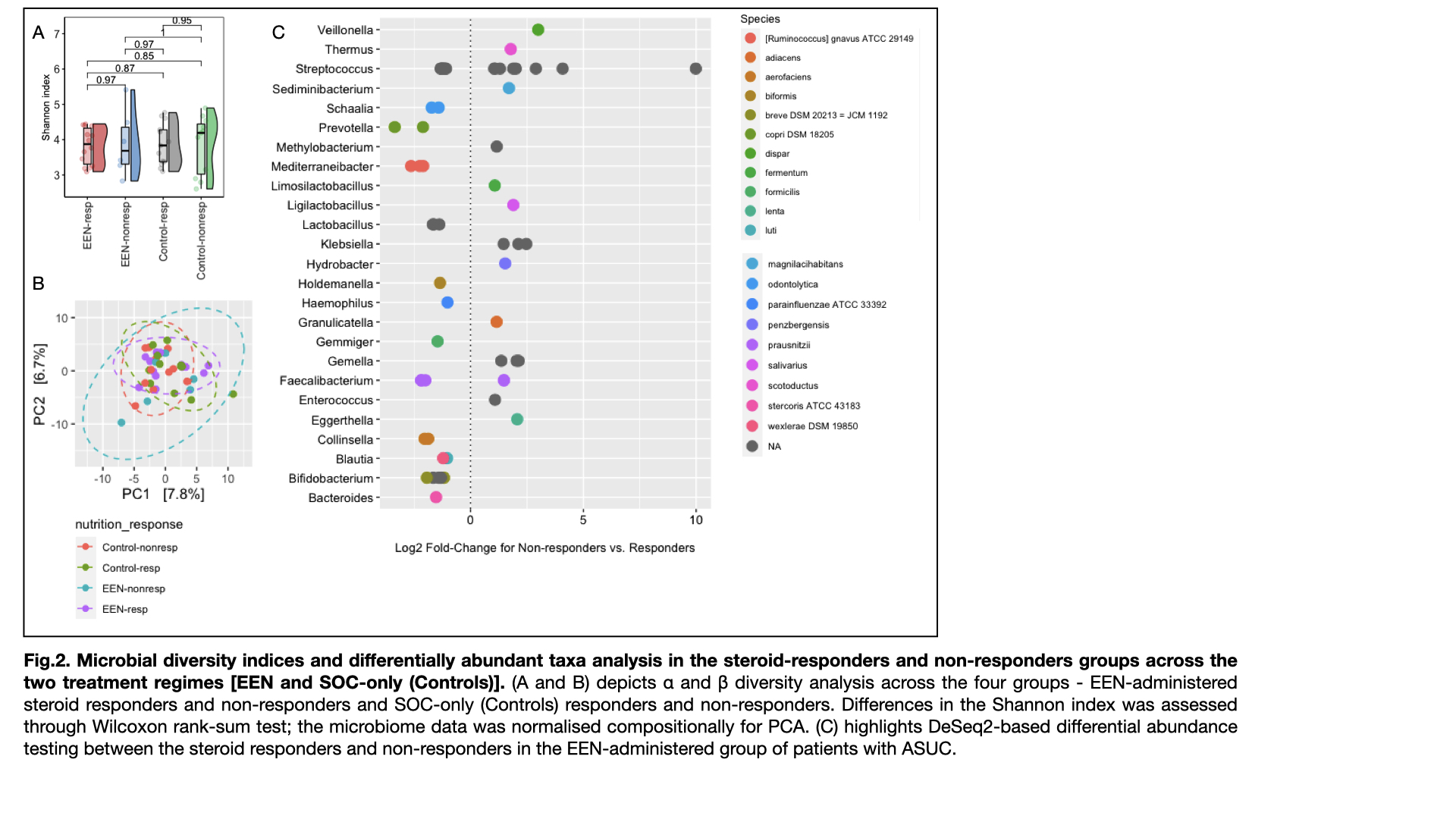P716 Exclusive Enteral Nutrition refurbishes beneficial gut microbiota in patients with Acute Severe Ulcerative Colitis
Bajaj, A.(1);Markandey, M.(1);Sahu, P.(1);Vuyyuru, S.K.(1);Kante, B.(1);Kumar, P.(1);Singh, N.(1);Gupta, A.(1);Singh, M.(1);Verma, M.(1);Makharia, G.(1);Kedia, S.(1);Ahuja, V.(1);
(1)All India Institute of Medical Sciences, Department of Gastroenterology and Human Nutrition, New Delhi, India;
Background
Methods
In an open-label RCT, patients with ASUC were randomized 1:1 to EEN and SOC groups. Patients on EEN received a semi-elemental formula for 7 days along with SOC. The primary outcome was steroid failure, defined by the need for salvage medical intervention. Faecal microbial analysis was performed on day-0 and day-7 by 16S-rRNA gene sequencing. Processing of raw reads, ASV tables, diversity, and core microbiome analysis was done using QIIME2-2021.4. Differential abundance analysis (DAA) was performed using Deseq2.
Results
The α and β diversity indices showed deviation neither in EEN nor in SOC groups. EEN caused a shift in core microbiota of patients with ASUC, adding Streptococcus and Faecalibacterium prausnitzii, while SOC could not change the core microbiota. DAA on the pre- and post-treatment samples showed that EEN resulted in diminished Ruminococcus gnavus, Escherichia sp., Bifidobacterium longum and Enterococcus sp., while the SOC led to reduction in beneficial F. prausnitziiand enhanced Escherichia.
DAA between steroid responders and steroid non-responders in the EEN group, showed significant enhancement of Veillonella, Ligilactobacillus, Limosilactobacillus, Gamella, Enterococcus and Eggerthella in the SR group, while Schaalia, R.gnavus, Lactobacillus, Bifidobacterium, Haemophilus were elevated in SNR group.
Conclusion
ASUC accompanies gut dysbiosis. EEN refurbishes certain beneficial gut microbial genera, which may account for its augmentation of the steroid responsiveness in patients with ASUC. 

References
1. Sahu P, Kedia S, Vuyyuru SK, Bajaj A, Markandey M, Singh N, Singh M, Kante B, Kumar P, Ranjan M, et al. Randomised clinical trial: exclusive enteral nutrition versus standard of care for acute severe ulcerative colitis. Aliment Pharmacol Ther 2021;


